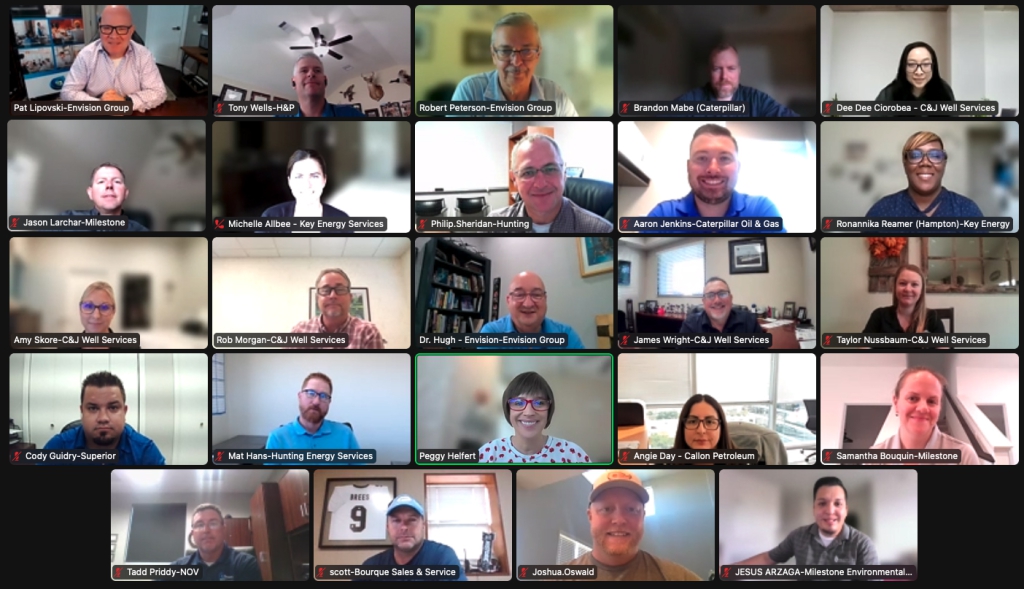The annual Finance for Non-Financial Professionals Program kicked off its series of week-long virtual classes on September 25.
The Finance for Non-Financial Professionals program is a week-long virtual seminar with a one-on-one executive coaching session which aims to increase financial literacy and help employees understand their role in strategic decision-making. The program helps participants understand the complexities of financial statements, capital budgeting and the importance of cash flow.
The group learned tools and strategies to help them develop and refine their overall understanding of accounting and finance. They explored and analyzed topics as sales, asset acquisitions and capital allocation within their organizations so that they can make better business decisions.
Over the course of the week, nine different modules were addressed covering various fundamental finance and accounting basics. Participants dove into such topics as understanding financial terms; interpreting income statements, balance sheets and cash flow statements; planning and creating a budget; and understanding the audit process.
At the start of the program, the participants were asked what they hoped to get out of the course and were placed in breakout groups to discuss. Responses varied from learning basic financial terminology to focusing on best practices.
“Our group talked about the importance of having a fundamental grounding in finance, learning the terminology to be able to speak the language, and understanding the essential principles in order to do that,” one participant said.
Others discussed the importance of a training like this as a whole for their organizations.
“Personally I would like to be able to pass along some of what we learn to my sales group; they’re very revenue driven but understanding the whole picture is not there, and I include myself in that statement because I don’t always understand the broader view. I think we all want to understand what finance means to each of our individual companies, and how we can use this knowledge to make our companies better.”
Program Participant
Participants joined additional breakout groups in order to practice and evaluate the reports being shared. One of the exercises was to review and analyze a real, publicly available balance statement, reporting out what items stood out as well as highlighting questions about the content. The breakouts provided the participants time to put what they had learned so far into practice, all while developing relationships with people they haven’t worked with before.
During the sessions, participants shared thoughts on the training, as well as ways they would be able to use what they learned within their organizations.
“This course gave me a platform to ask the questions I needed answered. Sometimes when you are not very financially savvy it can be intimidating to even ask questions. It was nice to have other industry people in this program where we had a space to ask questions and form this community.”
Program Participant
Following the program, each participant will have an executive coaching session, which will provide an opportunity for the participants to invest time in themselves and discover ways to fill gaps, identify blind spots and build upon the other skills they already have in place.
Energy Workforce would like to thank strategic partners Chevron, SLB and NexTier Completions Solutions. For information about next year’s course, contact Vice President Programs & Events Peggy Helfert.
Peggy Helfert, Vice President Programs & Events, writes about the Energy Workforce’s sector-specific best practices and leadership. Click here to subscribe to the Energy Workforce newsletter, which highlights sector-specific issues, best practices, activities and more.





